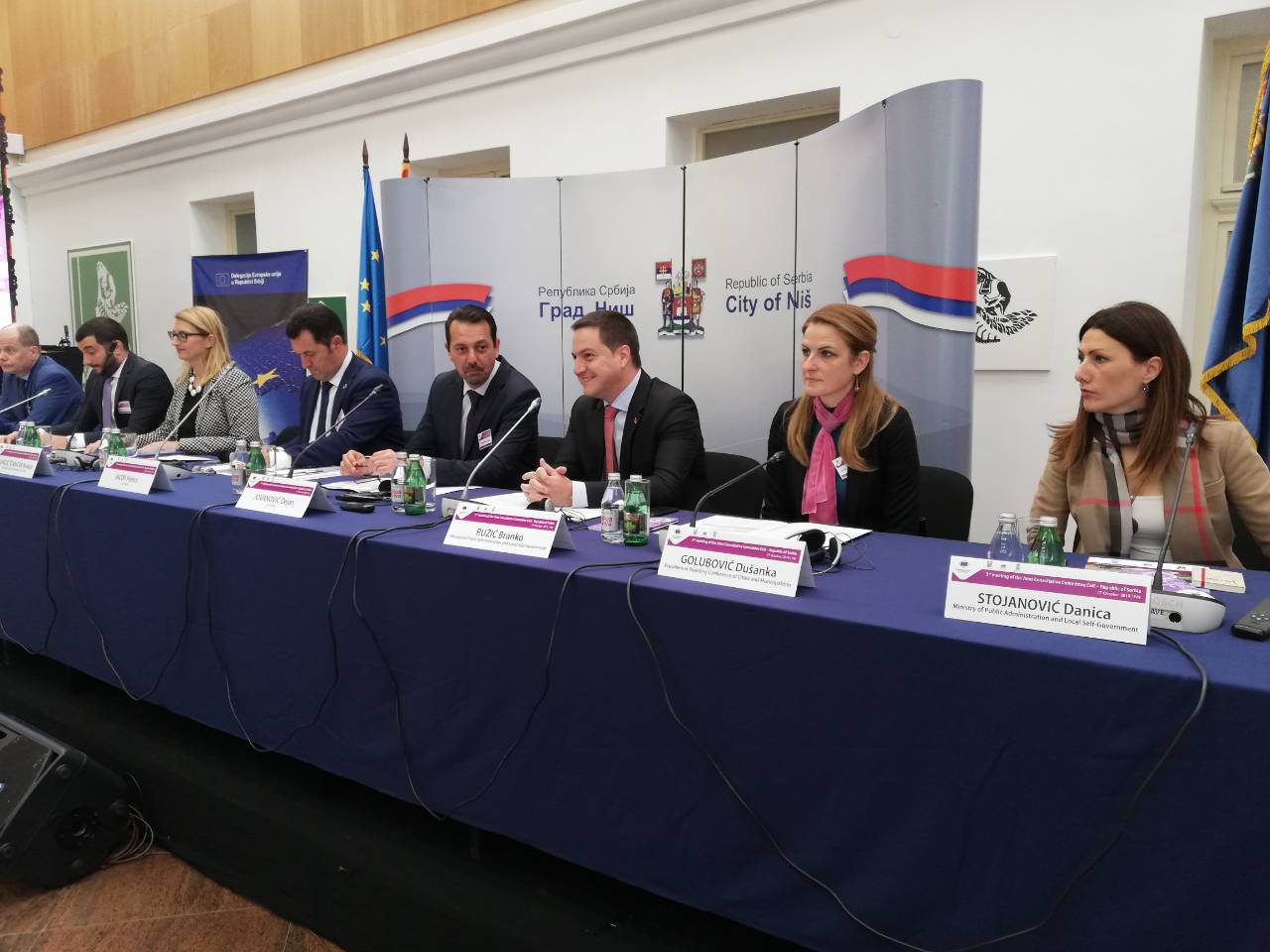
Minister of Public Administration and Local Self-Government Branko Ružić said today at the Fifth Session of the Joint Consultative Committee of the European Committee of Regions, which was held in Niš, that public administration reform was one of the three criteria for Serbia’s accession to the community of European peoples. “Municipalities and cities carry huge responsibilities in the process of EU accession and the public administration reform process therefore reforms also local self-governments, to help their administrations prepare to respond to the challenges”, the Minister said. The Minister pointed out that the reform included efficiency, economy, better management of resources and greater involvement of citizens in decision-making, especially at the local level. “We have simplified 188 procedures and made them uniform across all cities and municipalities; we are currently digitalising public administration to allow civil servants to swiftly exchange information and complete their tasks, and we have been improving their knowledge and skills to make them more welcoming of the changes”, Ružić said, noting that the most recent Serbia Progress Report in the EU integration process stated that progress had been observed across all areas. We have had the full support of the EU in the implementation of these activities. It has taken on various forms, with the most significant support coming through the so-called Sector Budget Support, the amount of which is 80 million euros. “We also greatly appreciate the support we have been receiving through bodies like the Joint Consultative Committees of the European Committee of Regions, because sharing of experiences with the local governments of European countries is invaluable for Serbian municipalities and cities, which will bear 75% of the burden of ensuring compliance with the requirements for EU accession”, Minister Ružić said. the Fifth Session of the Joint Consultative Committee of the European Committee of Regions gathers representatives of local governments and regions of EU Member States, while Serbia has the candidate status in this body. The JCC meets twice a year, with one of the two meetings every year held in Brussels. This year, it will also hold a session in Niš.



